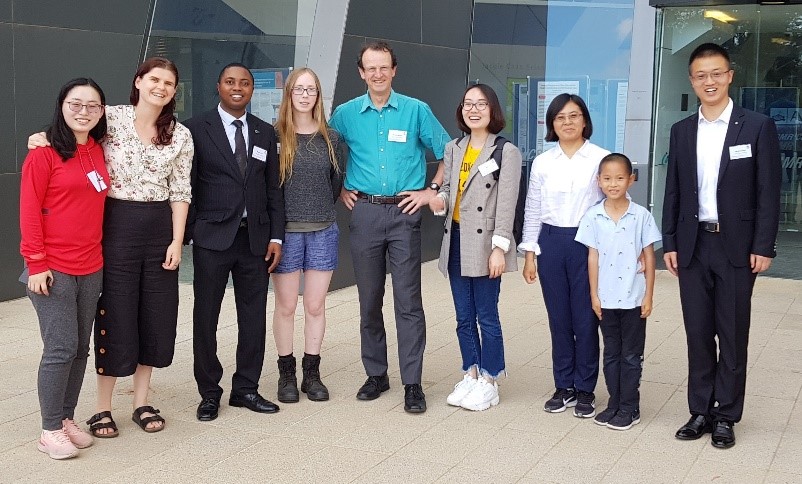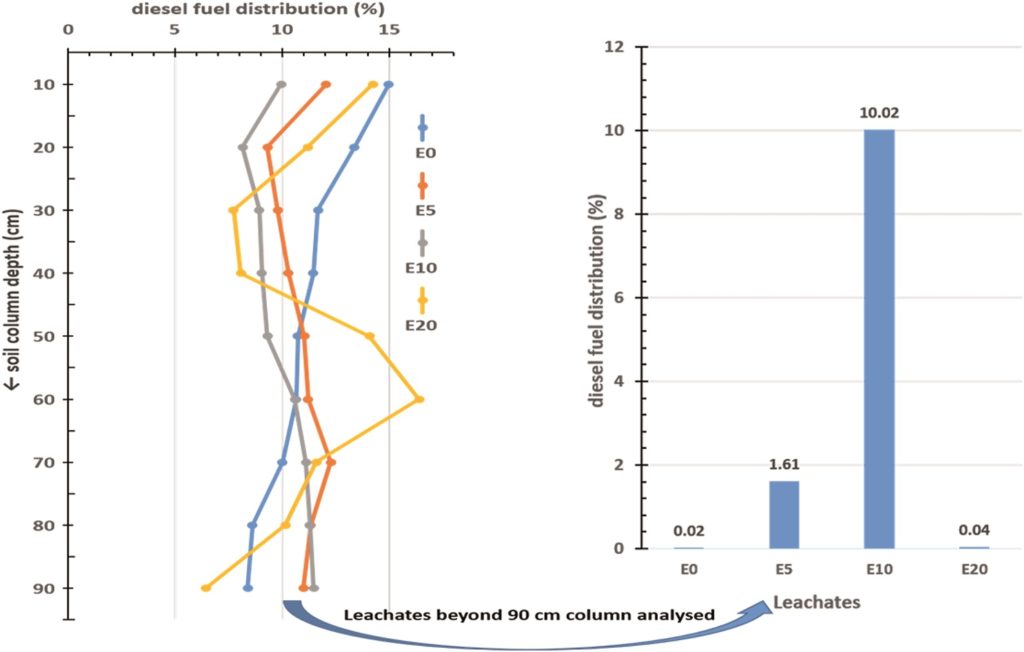We are very pleased to introduce Michael Eze, the corresponding author of the paper ‘Ethanol-blended petroleum fuels: implications of co-solvency for phytotechnologies‘. His article has been very well received and handpicked by our reviewers and handling editors as one of our February HOT articles. Michael was kind enough to tell us more about the work that went into this article and what he hopes to achieve in the future. You can find out more about the author and their article below and find more HOT articles in our online collection.
Meet the Author

Michael Onyedika Eze is a third year Cotutelle PhD student between Macquarie University, Sydney, Australia and Georg-August University, Goettingen, Germany. For this dual doctoral research, he was awarded the Australian Commonwealth scholarship, the Macquarie University Cotutelle Research Excellence scholarship and the prestigious German Academic Exchange Service (DAAD) scholarship. Prior to starting his PhD, he obtained a Bachelor of Science (Hons) degree in Pure and Industrial Chemistry from the University of Nigeria, Nsukka, and a Master’s degree in Analytical Chemistry. Michael is a passionate science communicator, receiving a 1st Place Award in a Three-Minute Thesis (3MT) Competition, as well as being a Finalist in a Falling Walls Lab Competition. He is also a recipient of various travel and research grants including the Royal Society of Chemistry competitive travel grants for PhD students and early career researchers, the European Association of Geochemistry travel grants, and the Petroleum Exploration Society of Australia 2018 tertiary institution grant, among others. In 2019, he was awarded the Carlos Walter M. Campos Memorial Award by the American Association of Petroleum Geologists (AAPG) for the Best International Student Paper at the 2019 AAPG international conference and exhibition.
Michael’s current research interest focuses on rhizoremediation of organic contaminants. Michael takes an interdisciplinary approach (involving organic geochemistry, geomicrobiology and genomics) and seeks to develop novel plant-microbe symbionts for enhanced rhizoremediation of petroleum contaminated sites. He also aims to fully delineate genes responsible for petroleum degradation and their pathways with the goal of revolutionising the way oil spills and other environmental contaminants are cleaned up.

Picture of the Organic Geochemistry Research Group, Macquarie University, Sydney, Australia. Group Leader: Professor Simon C. George
Could you briefly explain the focus of your article to the non-specialist (in one or two sentences only) and why it is of current interest?
Our article describes the effect that the current practice of adding ethanol to petroleum fuels could have on the effectiveness of phytoremediation as a reclamation strategy for soils contaminated with oil spills.
How big an impact could your results potentially have?
Around the globe, petroleum contamination remains the most persistent environmental problem resulting from oil and gas operations. The United States Environmental Protection Agency (US EPA) estimated that rehabilitation can cost over $US1 million per hectare using traditional methods. Thus, developing an affordable and eco-friendly remediation technique will have global impact.
Could you explain the motivation behind this study?
The motivation for this research stems from a number of reasons. On one hand, natural attenuation exhibit slow metabolic activity. On the other hand, traditional methods of remediation are very expensive and environmentally unfriendly. As a result, a number of contaminated sites are left as is or their rehabilitation is postponed. Suffice to say that the future of humanity hangs in the balance if our assault on “mother nature” does not receive commensurate attention. While microbial-enhanced rhizoremediation may prove to be the panacea, its success relies on the containment of contaminants within the rooting zones of plants. It thus implies that any energy innovation that increases the leaching potentials of hydrocarbons beyond the rhizospheric zones will limit the effectiveness of phytotechnology as a reclamation strategy for oil spills. Since ethanol is a co-solvent, we therefore decided to first examine its effect on the leaching potentials of both aliphatic and aromatic hydrocarbons. That is the crux of this paper.
In your opinion, what are the key design considerations for your study?
Well, owing to the interdisciplinary nature of my research, my PhD programme is domiciled in two different departments and in two separate continents. As a result, I am expected to submit two theses for the awards of PhD in Organic Geochemistry (Macquarie University, Sydney, Australia) and Dr. rer. nat. in Genomics and Applied Microbiology (Georg-August University, Goettingen, Germany). Thus, I needed to make sure from the outset that the entire research with its four separate projects are properly linked together and feasible, while maintaining the overarching aim of the research.
Which part of the work towards this paper proved to be most challenging?
For this particular experiment, setting up the leaching column was something that needed a careful thought. Controlling the two major factors that affect soil total petroleum hydrocarbon content, namely biodegradation and volatilisation while in the column seemed to be challenging. The methodology employed to achieve this is discussed in the paper.
What aspect of your work are you most excited about at the moment?
In view of the extensive use of high throughput sequencing techniques in my study, I am beginning to delineate genes and degradation pathways involved in hydrocarbon-degradation. Gaining insight into the full genomes and metagenomes of plant growth-promoting and hydrocarbon-degrading rhizobacteria is not only exciting but exhilarating!
What is the next step? What work is planned?
Today, the majority of research is still exploring remediation by plant or single microorganisms. What we can expect is more focus on plant-microbiome interactions. Our goal is to develop the right plant-microbe symbionts for effective remediation of petroleum contaminated sites. The results discussed in this article and that from our subsequent projects (phytotoxicity screening and microbial genomics) will guide us towards the achievement of this noble goal. By directing our attention to full genomes of plant-microbe symbionts, we hope to gain a better understanding of the integrated activity of plants and oil-degrading microbes. Armed with this knowledge we will be able to engineer microbes that can degrade hydrocarbon spills even better. Additionally, in the near future, I hope to direct my attention to extremophiles, that is, organisms that maintain optimal growth in environmental conditions considered extreme. This, I hope, will prove useful for environments with mixed contaminants such as those with petroleum and heavy metals/acidic contaminants.
Ethanol-blended petroleum fuels: implications of co-solvency for phytotechnologies
Michael O. Eze and Simon C. George
RSC Adv., 2020, 10, 6473-6481
DOI: 10.1039/C9RA10919F, Paper

 Submit to RSC Advances today! Check out our author guidelines for information on our article types or find out more about the advantages of publishing in a Royal Society of Chemistry journal.
Submit to RSC Advances today! Check out our author guidelines for information on our article types or find out more about the advantages of publishing in a Royal Society of Chemistry journal.
Keep up to date with our latest HOT articles, Reviews, Collections & more by following us on Twitter. You can also keep informed by signing up to our E-Alerts.










